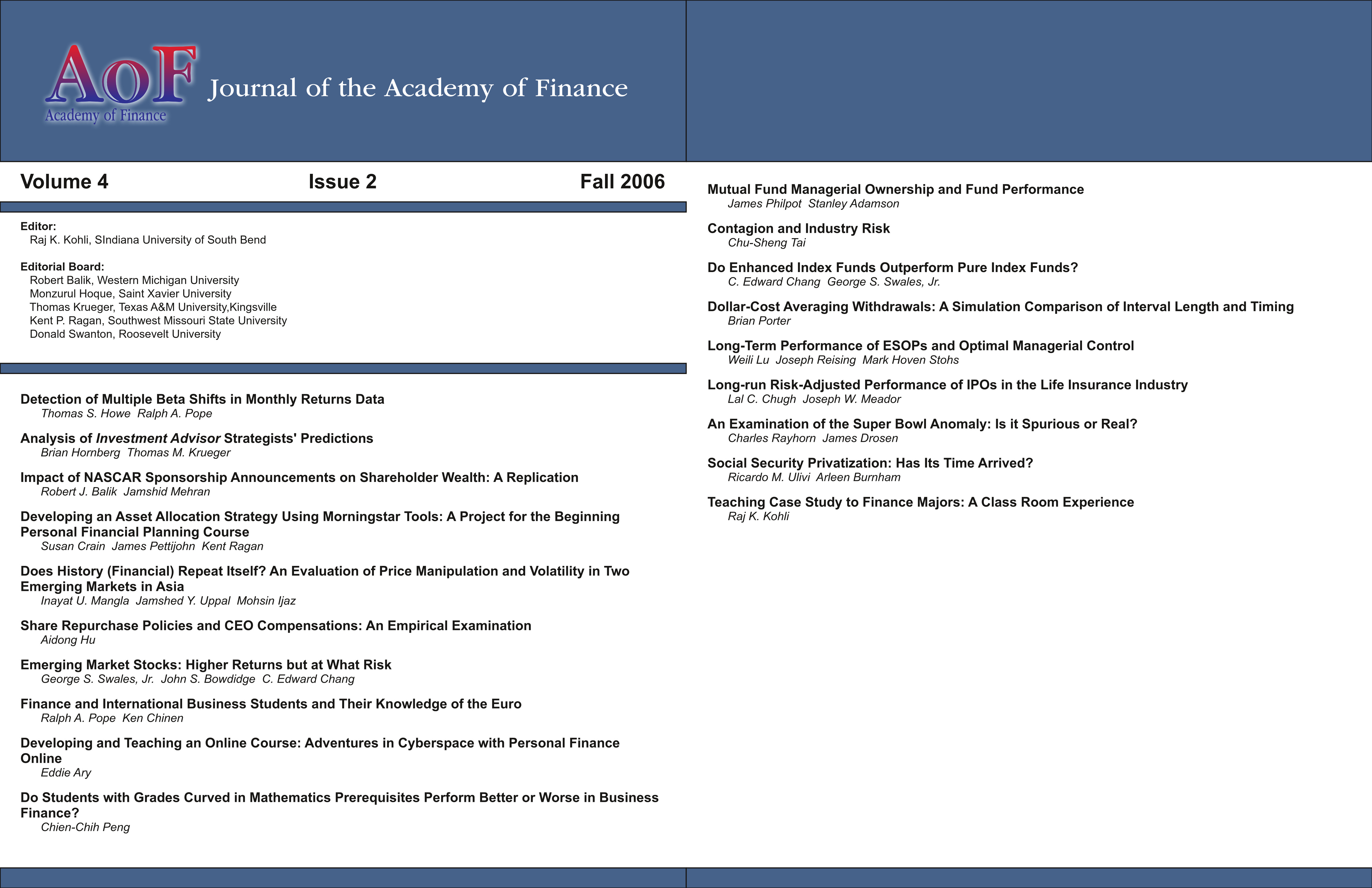Long-Term Performance of ESOPs and Optimal Managerial Control
DOI:
https://doi.org/10.58886/jfi.v4i2.2440Abstract
This abstract was created post-production by the JFI Editorial Board.
Our paper examines the interaction between managerial control and ownership in firms with employee stock ownership plans (ESOPs) to determine whether there is evidence of entrenchment in such firms. An increase in executive ownership in a firm gives managers greater control over the firm, but makes them significant shareholders, so their incentives are more aligned with other shareholders. However, a compensation plan that provides executive effective control over a large block of shares without the counterbalancing executive ownership could permit executives to entrench themselves at the cost of the other shareholders. ESOPs are plans like this, and they allow for separation between ownership and control by enabling the board to influence the distribution of unallocated shares from the ESOP. Such a separation could lead to managerial entrenchment.





